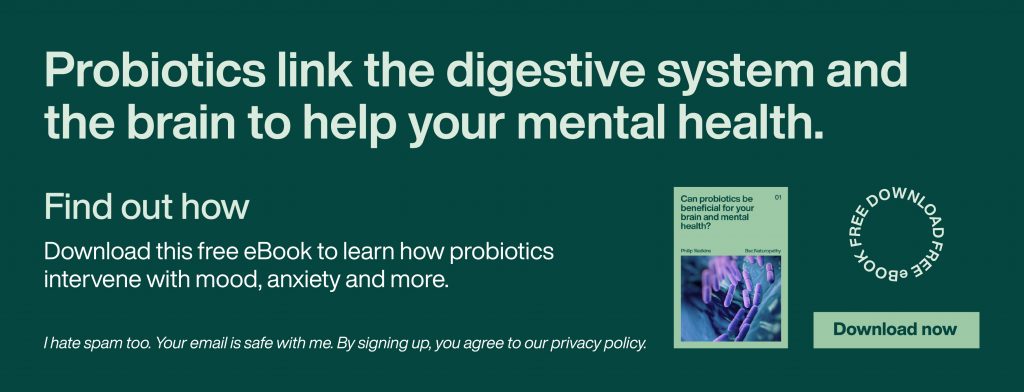In this Free and Inspired radio episode, Philip explores the connection between your gut, brain and chronic pain.
“In my early years of practice, I saw many fibromyalgia patients. From my point of view, the level of debilitation is second to none. One of the critical facets I witnessed then almost fifteen years ago is the need for a multidisciplinary approach to chronic pain management.”
In 2023 and beyond, this multidisciplinary approach for chronic pain seems to entail a multi-system intervention with the gut-brain axis as a central figure.
Philip begins by breaking down the link between the gut and the brain.
For example, did you know that the enteric nervous system in the digestive system has a similar neuronal composition (around 200-600 million neurons) as the spinal cord?
Probiotics are central to the connection between digestion and the brain.
For example, specific probiotic strains such as Lactobacillus rhamnosus have reduced subjective anxiety scores in healthy subjects in just four weeks.
So, we know the gut affects the brain, but how does the brain affect pain?
Bacteria in the gut go through a process that either builds something or breaks it down. The products produced at the end of that reaction/process are the ones that influence the central nervous system.
For example, these metabolites influence the central nervous system via immune cells within the brain called microglia.
A fascinating part of this is that inhibiting microglial activation can result in positive changes in pain within minutes to tens of minutes.
Philip breaks down how this ability for the gut and brain connection to reduce the immune response caused by stress helps with people with chronic pain.
Why is visceral pain significant?
Visceral pain is the type of pain that most people seek medical attention for. It is also the most common form of pain produced by disease.
And it seems that serotonin, a neurotransmitter made in the gut can play a significant role in helping people to manage their visceral pain.
Especially in those experiencing visceral pain associated with IBS.
Changes in serotonin levels are critical here. Especially when they are low. When serotonin levels are low, along with the amino acid that builds serotonin, tryptophan, researchers have shown increases in pain and urge scoring in IBS.
Not to mention the combined effects of other parts of gut health.
Philip finishes the episode looking at how probiotics help pain in conditions such as osteoarthritis.
All this and more in this episode of Free and Inspired radio.
Watch Video Now
Listen to this episode on Free and Inspired Radio
Listen to Free and Inspired Radio on your favourite platform

